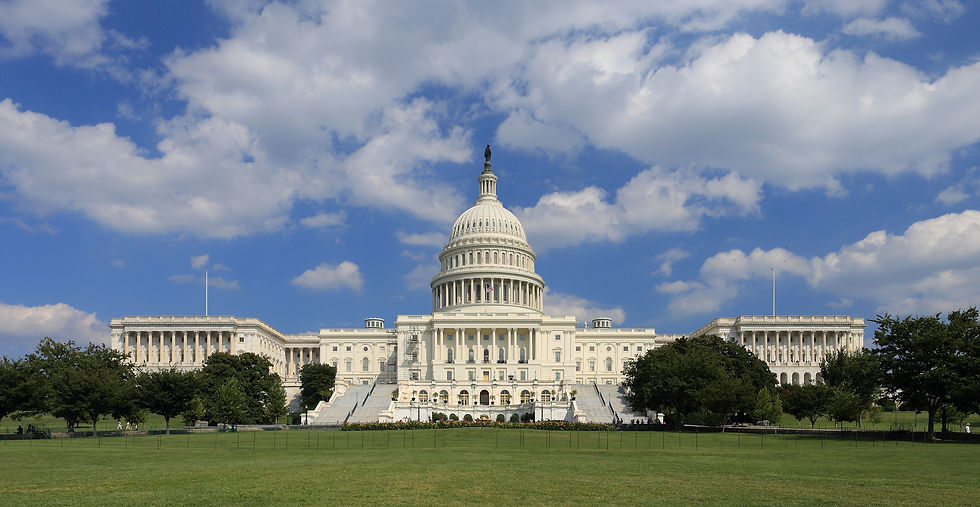Secure the U.S.-Mexico border to help reduce overdose deaths
- Peter Osborne
- Mar 13, 2022
- 3 min read
By Carol Miller and Sarah Chamberlain
Whether it’s friends, family, or even the person next to you at the grocery store or in the pew at church, we all know people who have felt the devastating effects of the drug crisis firsthand.

Unfortunately, this epidemic has worsened in recent years. Between April 2020 and April 2021, there were more than 1,600 drug overdose deaths in West Virginia and 100,000 drug overdose deaths nationwide, an increase of 28.5% from the same period in the prior year. The U.S. Centers for Disease Control and Prevention has connected increases in drug overdose deaths to the nationwide COVID-19 response, which caused millions of Americans to isolate and grapple with the anxieties of an unprecedented pandemic alone.
West Virginia saw a rise of 62% -- the second-highest in the nation -- as we lost 1,600 West Virginians – an average of 31 people per week. That’s more than the population of 310 cities and towns in my state of 403 cities.

During years of COVID-19 lockdowns, the increasing amount of deadly drugs pouring across our southern border with Mexico has also contributed to this unprecedented crisis. Nearly two-thirds of the drug overdose deaths in the last fiscal year were from synthetic opioids, primarily fentanyl, which is 50 times more potent than heroin.
Drug overdose deaths now rank close to diabetes – the nation’s No. 7 cause of death – and surpass deaths from car crashes, guns, and even flu and pneumonia.
Reports full of statistics say drug deaths among children ages 10 to 14 more than tripled from 2019 to 2020 and two out of every five fake pills contain a potentially deadly dose of fentanyl. As mothers, it breaks our hearts. As a lawmaker, it is unacceptable.
It’s even more painful to read the news reports of fentanyl-related overdoses by middle school and high school students in every state of our union. Those stories often include comments that many of these students were trying to cope with anxiety, feelings of helplessness, and the sense of isolation from COVID-19.
Leaders in Washington must come together and work across the aisle to address this crisis before any more American lives are lost. To stifle the flow of these drugs into our communities, we must go to the source and secure our southern border.
The collapse of a secure southern border has allowed fentanyl and other deadly drugs to funnel into our country and spread throughout our communities. Fentanyl seizures were up 1,066% at eight southern Texas border ports in the fiscal year ending Sept. 30, 2021. These staggering numbers make clear: The consequences of President Biden’s border crisis span far beyond border states.
We need to ensure law enforcement has the tools to combat this threat and take swift action against traffickers of deadly drugs. The temporary Schedule 1 classification of fentanyl-related substances expires on March 11, 2022. We urge the Biden Administration to make that classification permanent.

It is equally important to address the demand for drugs in America. We can help people struggling with addiction get clean, back on their feet, and reintegrated into society through increased access to recovery programs and facilities. State-funded workforce development programs should also be invested in helping those in recovery get back on the job.
During the Trump administration, Congress made historic investment through the SUPPORT Act. Coupled with the hard work by the Substance Abuse and Mental Health Services Administration, West Virginia and the nation had turned the corner in addressing the opioid crisis. Today, it’s clear the COVID-19 public-health emergency and the disastrous border crisis have set us back. We must work diligently in a bipartisan way to secure our border, stop the flow of drugs, and help Americans in addiction get back on track.
Carol D. Miller, a Republican, represents West Virginia’s Third District and serves on the House Ways and Means Committee. Sarah Chamberlain is president and CEO of the Republican Main Street Partnership, which promotes bipartisan consensus building on public policy issues.




Comments